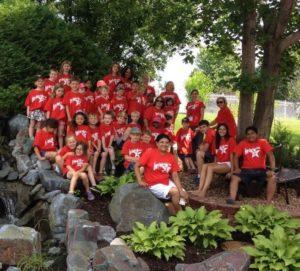Self-Regulation and Child Development
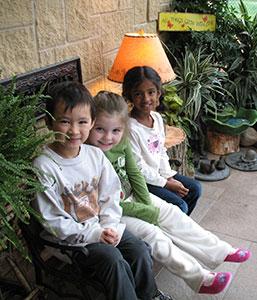
What is self-regulation and what does it have to do with your child’s development? Take a look at what you need to know about the early childhood period, this budding ability, and how the Montessori classroom can help your child to build self-regulation skills.
Self-Regulation Spans the Developmental Domains
Self-regulation isn’t one skill that your child will develop in one specific area. Instead, it’s an ability that spans all the developmental domains — cognitive, emotional, social, and physical. Each of the developmental domains are connected. (more…)
4 Ways Free Play Encourages Learning and Development in Children
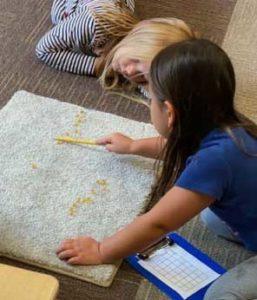
As you consider kindergarten school options for your child, one of your choices includes a Montessori program. Unlike a structured public school system, a Montessori program features a lot of free play and flexibility for a child. The free play options give a child a lot of opportunities to grow independently and are not just about using toys.
When students embark in free play activities, they learn a variety of skills and improve their development. See some of the specific ways children can learn and grow through free play activities in a Montessori program.
3 Advantages of 3-Day Montessori School
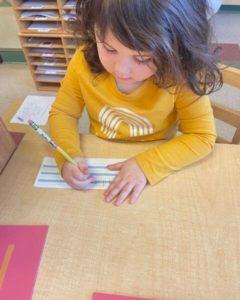 When your child turns five and qualifies for kindergarten, you have a lot of options to consider as a parent. Several public schools offer full-day kindergarten five days a week, but you are not forced to do this option. As you explore kindergarten programs, you will find three-day Montessori school as an option.
When your child turns five and qualifies for kindergarten, you have a lot of options to consider as a parent. Several public schools offer full-day kindergarten five days a week, but you are not forced to do this option. As you explore kindergarten programs, you will find three-day Montessori school as an option.
The three-day school option varies and you can often pick which three days you want your child to attend. Check out some of the advantages of the three-day Montessori schooling, especially when compared to traditional public kindergarten options.
- Learning Styles
The Montessori Timeline From the 20th Century to the Present
What You Need to Know About the Nido
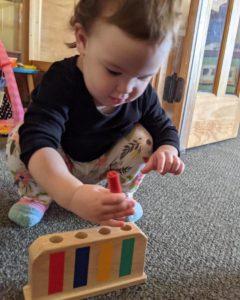 Is Montessori the right type of program for your infant? If this is your first experience with an early learning and care setting, take a look at what you need to know about infant development, the first steps towards your child’s education, and the Montessori philosophy.
Is Montessori the right type of program for your infant? If this is your first experience with an early learning and care setting, take a look at what you need to know about infant development, the first steps towards your child’s education, and the Montessori philosophy.
What Are Montessori Infant Programs Called?
Montessori education features its own vocabulary. Preschoolers ages three through six are grouped into the Montessori Children’s House — or casa dei bambini. An infant isn’t old enough to participate in the Children’s House early learning environment, but they can still go to a Montessori school. Infants attend the Montessori Nido, which is Italian for nest. However, not all Montessori schools use this terminology.
Do Montessori Infant Programs Provide Child Care?
Montessori programs aren’t all equal or the same. Some programs provide Monday through Friday full-day child care. Other programs offer an education-focused curriculum on a part-time (partial week and partial day) basis. (more…)
The Dos and Don’ts of Finding Your First Montessori School
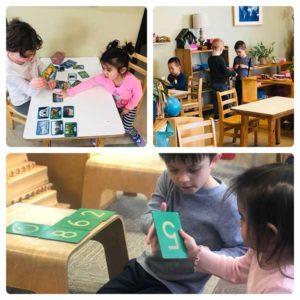
Is your child ready to start school? More specifically, are they ready to start a Montessori school? If you are unsure which program is the right choice, look at the dos and don’ts that can help you to select the perfect preschool program for your family’s needs.
Do Learn More About the Montessori Method
Are you sure Montessori is the right fit for your young child? The more you learn about Montessori preschools, the better equipped you are to make an informed decision. If this is your first experience with early learning and Montessori schools, you can learn more about this educational method from: (more…)
How a Montessori Preschool Can Help a Child Who Needs More Time

Does your child need more time to master new skills? Every child learns and grows at their own pace. If the daily schedule of a traditional classroom doesn’t meet your preschooler’s needs, take a look at what you need to know about the benefits of a Montessori early childhood education (preschoolers ages three through six).
The Self-Paced Learning Environment
Montessori schools allow young children to take the lead and learn at their own pace. While this strategy isn’t an academic or educational free-for-all, the Montessori philosophy does give preschoolers the opportunity to build skills and explore content in ways that make sense for their own developmental needs.
In Montessori early childhood classrooms, teachers don’t stop students in the middle of a learning experience or push them to follow a strict schedule. Instead of a timed approach to each new lesson, activity, or exploration, Montessori schools use an uninterrupted work period. As the name implies, this period gives children the chance to work without the teacher interrupting their progress or process. (more…)
The Benefits of a Montessori Summer Camp Experience
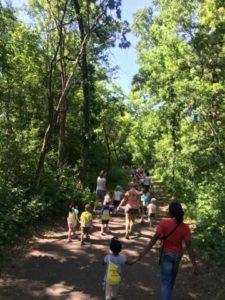 Why should your school-aged child go to summer camp? If you’re not sure what your child should do when school is done for the year, take a look at the reasons to choose a Montessori day camp.
Why should your school-aged child go to summer camp? If you’re not sure what your child should do when school is done for the year, take a look at the reasons to choose a Montessori day camp.
Build Confidence
Summer camp is a fun-filled way to spend out-of-school days — and so much more. Montessori education provides children with a way to learn and develop new skills in a self-paced environment. This helps young students to take control of their own education and build confidence.
Even though a summer-time program may not have the same structure or content you would see in a regular school-year classroom, the philosophy behind Montessori summer camp is still the same. The child-centered nature of Montessori education combined with the fun and freedom of a summer camp create the ideal environment for your child to develop the self-esteem they need to believe in themselves and their abilities. (more…)


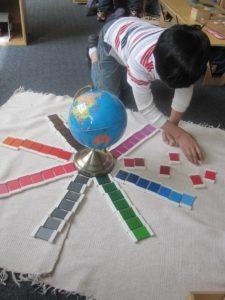 With all the varied childcare and education options available for your family, narrowing in on the right philosophy and method for your child can be difficult. Every school and facility is a little different, including ones that practice Montessori methods, and when it comes to what is best for your little one, all of the options can begin to seem overwhelming.
With all the varied childcare and education options available for your family, narrowing in on the right philosophy and method for your child can be difficult. Every school and facility is a little different, including ones that practice Montessori methods, and when it comes to what is best for your little one, all of the options can begin to seem overwhelming.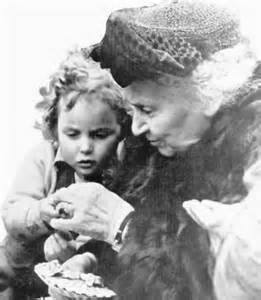 Is Montessori the right early educational experience for your child? If you’re not sure what to expect from this type of learning environment, how the overall philosophy can help your child, or how it became a leading educational option, take a look at the timeline of the Montessori method and how it connects to modern day child development programs.
Is Montessori the right early educational experience for your child? If you’re not sure what to expect from this type of learning environment, how the overall philosophy can help your child, or how it became a leading educational option, take a look at the timeline of the Montessori method and how it connects to modern day child development programs.